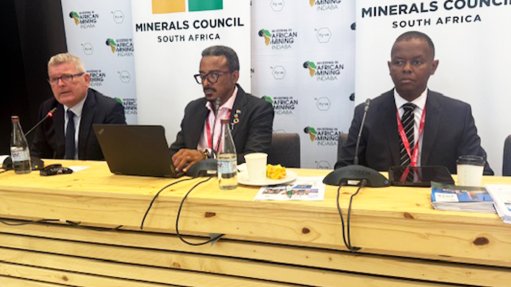Oil companies’ immoral greed
Food inflation around the world is at stratospheric levels, with an important indicator, the World Bank’s Food Price Commodity Index, having surged by more than 80% in the past two years. The key drivers have been supply-chain disruptions stemming from measures imposed by governments in 2020 to curb the spread of the coronavirus and Russia’s invasion of Ukraine earlier this year, which has severely restricted exports of grains and edible oils, among other commodities, from these key producers.
Besides restricting the shipment of foodstuffs, the conflict has also fuelled food price increases in that the costs of transporting supplies across the world have skyrocketed as Russian oil exports dwindle, owing to embargoes imposed on the country to punish it for its aggression in Ukraine. Russia is a major oil producer and exporter.
The near-term outlook is not pretty. The World Bank, for one, forecasts a 20% increase in food prices this year, with an easing in 2023, assuming there will be no further supply disruptions and that agricultural input costs won’t increase. In some countries, where people already spend two-fifths of their income on food, rising prices are truly deadly, the United Nations (UN) Food and Agricultural Organisation (FAO) warned in a report released last month. What’s more, 2.3-billion people worldwide face moderate or severe difficulty obtaining enough to eat, while in the African countries of Ethiopia, Somalia and South Sudan, as well as in Yemen and Afghanistan, sections of the population are having to contend with what FAO describes as “catastrophic levels of hunger”.
In the midst of all this, the world’s oil multinationals are having it so good. Taking advantage of the limited oil supplies on the world market – a result of the Russian sanctions – they are engaging in price gouging. In the three months to June, ExxonMobil generated a net profit of $17.9-billion, up from $4.69-billion in the corresponding period of the previous year, while Shell reported a year-on-year doubling of its profit to $11.5-billion. Chevron earned $11.62-billion and BP $8.45-billion.
Dirty coal is also benefiting from the ongoing energy crisis. As Europe tries to wean itself off Russian gas as part of a raft of punitive measures against the country, demand for coal, a more polluting fossil fuel, is on an upward trajectory and the economics law of supply and demand – where supply that is inadequate to meet demand triggers a price surge – has kicked in big time. As a result of the high prices, commodities giant Glencore’s coal unit generated $8.9-billion in core earnings for the first half of this year, a 900% increase on the figure for the first six months of 2021. Chinese companies, which account for half the world’s coal production, more than doubled their earnings for the first half of this year to a combined $80-billion.
It would be too ambitious to expect the fossil fuel companies to voluntarily use some of their windfall to soften the impact of soaring food prices on the poor – I get that. However, they should at least invest in projects that will help the world transition to a low-carbon future. But no, their priority is rewarding their shareholders with hefty dividends.
The unconscionable behaviour of these companies has not gone unnoticed, with no less a person than UN secretary-general António Guterres saying earlier this month: “It is immoral for oil and gas companies to be making record profits from this energy crisis on the backs of the poorest people and communities, at a massive cost to the climate.
“I urge all governments to tax these excessive profits and to use the funds to support the most vulnerable people through these difficult times.”
I cannot agree more; Guterres is spot-on.
Article Enquiry
Email Article
Save Article
Feedback
To advertise email advertising@creamermedia.co.za or click here
Comments
Press Office
Announcements
What's On
Subscribe to improve your user experience...
Option 1 (equivalent of R125 a month):
Receive a weekly copy of Creamer Media's Engineering News & Mining Weekly magazine
(print copy for those in South Africa and e-magazine for those outside of South Africa)
Receive daily email newsletters
Access to full search results
Access archive of magazine back copies
Access to Projects in Progress
Access to ONE Research Report of your choice in PDF format
Option 2 (equivalent of R375 a month):
All benefits from Option 1
PLUS
Access to Creamer Media's Research Channel Africa for ALL Research Reports, in PDF format, on various industrial and mining sectors
including Electricity; Water; Energy Transition; Hydrogen; Roads, Rail and Ports; Coal; Gold; Platinum; Battery Metals; etc.
Already a subscriber?
Forgotten your password?
Receive weekly copy of Creamer Media's Engineering News & Mining Weekly magazine (print copy for those in South Africa and e-magazine for those outside of South Africa)
➕
Recieve daily email newsletters
➕
Access to full search results
➕
Access archive of magazine back copies
➕
Access to Projects in Progress
➕
Access to ONE Research Report of your choice in PDF format
RESEARCH CHANNEL AFRICA
R4500 (equivalent of R375 a month)
SUBSCRIBEAll benefits from Option 1
➕
Access to Creamer Media's Research Channel Africa for ALL Research Reports on various industrial and mining sectors, in PDF format, including on:
Electricity
➕
Water
➕
Energy Transition
➕
Hydrogen
➕
Roads, Rail and Ports
➕
Coal
➕
Gold
➕
Platinum
➕
Battery Metals
➕
etc.
Receive all benefits from Option 1 or Option 2 delivered to numerous people at your company
➕
Multiple User names and Passwords for simultaneous log-ins
➕
Intranet integration access to all in your organisation


















